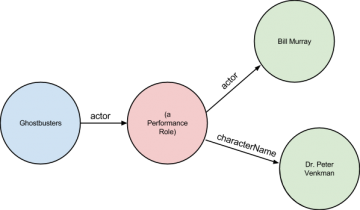Una nuova rubrica su Semantic Search ora è possibile perché iniziano a girare tante informazioni interessanti sull’argomento. Quello che cercherò di fare è raccogliere e condividere con voi le cose interessanti che troverò relativamente al Web Semantico possibilmente orientato agli aspetti SEO.
#1 What is Schema.org?
Si tratta di una pubblicazione fatta da +Phil Barker e +Lorna Campbell che potete trovare qui e che per comodità incorporo sotto.
È un formato molto carino che bilancia la complessità tecnica dell’argomento con la brevità e la spiegazione fruibile anche ai meno tecnici.
“This briefing describes schema.org for a technical audience. It is aimed at people who may want to implement schema.org markup in websites or other tools they build but who wish to know more about the technical approach behind schema.org and how to implement it. We also hope that this briefing will be useful to those who are evaluating whether to implement schema.org to meet the requirements of their own organization.”
#2 Entità, Knowledge Graph, Sinonimi e Anchor Text
 Come al solito Bill Slawski da il suo contributo alla causa con due analisi di alcuni patent di Google. Il primo è “How Google Might Identify Synonyms for Entities Using Anchor Text” e l’altro è “Finding Entity Names in Google’s Knowledge Graph”. Due post da leggere perché danno un po’ di background utile. Quello che dobbiamo metterci in testa è sempre più l’importanza che Google sta mettendo nell’estrazione di entità e nella loro disambiguazione.
Come al solito Bill Slawski da il suo contributo alla causa con due analisi di alcuni patent di Google. Il primo è “How Google Might Identify Synonyms for Entities Using Anchor Text” e l’altro è “Finding Entity Names in Google’s Knowledge Graph”. Due post da leggere perché danno un po’ di background utile. Quello che dobbiamo metterci in testa è sempre più l’importanza che Google sta mettendo nell’estrazione di entità e nella loro disambiguazione.
#3 Un sistema per comprendere gli eventi futuri
Un articolo di David Smydra “Building a system for understanding future news events” che ho trovato grazie a Joshua Benton di Nieman ci illustra una proposta per strutturare il dato degli eventi futuri (FN-JSON: future events JSON).
#4 Introdotto Role in Schema.org

Con l’articolo “Introducing ‘Role'” il team di schema.org lancia un nuovo tipo “Role” che permette di definire meglio una relazione o proprietà.
Incollo direttamente l’estratto dal Tipo che ha anche alcune estensioni come OrganizationRole e PerformanceRole che immagino cresceranno presto.
Dalla pagina https://schema.org/Role:
Represents additional information about a relationship or property. For example a Role can be used to say that a ‘member’ role linking some SportsTeam to a player occured during a particular time period. Or that a Person’s ‘actor’ role in a Movie was for some particular characterName. Such properties can be attached to a Role entity, which is then associated with the main entities using ordinary properties like ‘member’ or ‘actor’.
Non voglio rendere troppo pesante questa rubrica già abbastanza densa…quindi rimando il resto alla prossima settimana con #SemanticSEOWut.



